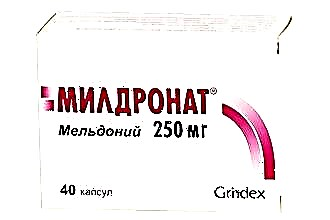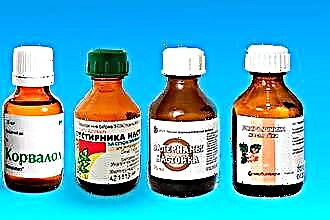The mucous membrane of the nose is a kind of protective barrier. It prevents infection from entering the body and thus protects the internal organs. Allergic swelling of the nose indicates that our body is actively opposing elements from the outside, which it considers foreign and harmful. The body's reflex response to infection attempts to overcome the barrier is to increase the permeability of the blood vessels in the nose. As a result, blood flow to this organ increases significantly.
Possible reasons
 Swelling of the mucous membrane is equally found in both adults and children. It can be caused by a variety of diseases. We are talking about inflammatory processes in the paranasal sinuses, rhinitis (runny nose), allergies, and so on. In this case, the patient has difficulty nasal breathing, burning and sore throat, dryness in the nasopharynx and some other symptoms. To rule out improper treatment, it is necessary to consult a doctor. Only he will be able to accurately identify the key cause of the edema.
Swelling of the mucous membrane is equally found in both adults and children. It can be caused by a variety of diseases. We are talking about inflammatory processes in the paranasal sinuses, rhinitis (runny nose), allergies, and so on. In this case, the patient has difficulty nasal breathing, burning and sore throat, dryness in the nasopharynx and some other symptoms. To rule out improper treatment, it is necessary to consult a doctor. Only he will be able to accurately identify the key cause of the edema.
Before removing the swelling of the nasal mucosa, it is necessary to establish what caused it. Basically, such a pathological condition of the mucous membrane is provoked by the following factors:
- In some cases, mucosal edema is one of the manifestations of the body's allergic reaction to a particular stimulus. At the moment, there are about 300 different substances that can cause allergies. First of all, these are pollen, animal hair, chemical compounds and some medicines. The allergen provokes the expansion of the blood vessels in the nose, as a result of which there is an active production of mucus. Therefore, the mucous membrane begins to swell.
- Respiratory illnesses can also cause mucosal edema. When an infection affects the paranasal sinuses, sinusitis, sinusitis, and other similar ailments appear. If you don't seek professional help, pus will build up in your sinuses over time. This is fraught with many dangerous complications.
- Edema as a result of mucosal inflammation can be caused by hypothermia. Therefore, we recommend that you always dress for the season, wear hats in winter (especially for people with weak immune systems). Do not drink overly cold drinks.
- Young children are also not immune from mucosal inflammation. In most cases, it appears due to the adenoids. We are talking about pathological hypertrophy of the tissues of the tonsils located in the nasopharynx. The main reasons for this phenomenon are a lack of vitamins and minerals, weak immunity and frequent colds (especially in the autumn-winter period).
 Mechanical trauma to the nose is another common cause of edema. In this case, the edema will be a reflex reaction of the body to a bruise. In this way, the "damage" due to mucosal damage is compensated. The time to get rid of edema depends on the strength of the mechanical effect and immunity.
Mechanical trauma to the nose is another common cause of edema. In this case, the edema will be a reflex reaction of the body to a bruise. In this way, the "damage" due to mucosal damage is compensated. The time to get rid of edema depends on the strength of the mechanical effect and immunity.- In some cases, swelling of the nasal mucosa is triggered by a hormonal imbalance. Most often, this pathology occurs in girls (especially during pregnancy). The mechanism for the appearance of such edema is quite simple: it is triggered due to the active production of the hormone progesterone by the body.
Symptoms
Puffiness of the nose with allergies is difficult enough not to notice. As the size of the mucous membrane increases, the shells of the nose begin to swell. Therefore, nasal breathing is partially or completely disturbed. The manifestations of the disease in each case may differ.
For example, edema caused by viruses or bacteria is accompanied by the following symptoms:
- dryness of the mucous membrane;
- burning sensation in the nose;
- secretion of mucus (clear or with pus);
- non-intense coughing attacks;
- an increase in temperature to subfebrile values (maximum 39 degrees);
 headache;
headache;- general weakness of the body;
- intoxication;
- inability to breathe through the nose (most often observed at night);
- heaviness in the nose and a feeling of internal pressure.
When examined by an ENT doctor, swelling of internal tissues is clearly visible. If the main cause of the swelling is allergies, the nose clogs up very quickly. She is accompanied by the following symptoms:
- attacks of coughing and sneezing;
- irritation of the mucous membrane and severe perspiration;
- itching on the soft palate;
- abundant secretion of a transparent secretion (mucus) from the nose;
- itching of the skin adjacent to the nose;
- lacrimation.
If we talk about the so-called traumatic edema, then it will be accompanied by complete nasal congestion. Because of this, normal breathing through the nose is disrupted. During sleep, snoring appears (even if the person has not snored before), pain is present in the nasopharynx.
When the cause of edema is the ingress of a foreign body into the nose, then only one nostril can be blocked.
Treatment
How to get rid of allergic edema? Doctors advise first of all to interrupt contact with the allergen. Next, you should use drugs that relieve allergic swelling of the mucous membrane. They are not difficult to buy at any pharmacy without a prescription. Possible options:
 Special antiallergic drops relieve swelling well. They contain the active substance histamine, which blocks receptors ("Cromohexal", "Allergodil" and so on). These drugs can be used even in the early stages of edema.
Special antiallergic drops relieve swelling well. They contain the active substance histamine, which blocks receptors ("Cromohexal", "Allergodil" and so on). These drugs can be used even in the early stages of edema.- Drops with sea water can become a compromise between pharmacy medicines and prophylactic agents. Dolphin, Aquamaris, Salin and some other drugs help get rid of mucus and relieve even severe swelling. At the same time, they have no contraindications.
- It is impossible not to remember about anti-congestants and adrenomimetics. Do not be fooled by such difficult-to-pronounce names: we are talking about the well-known "Naftizin". But it helps to relieve swelling only for a while, and prolonged use of the drug can cause vasospasm. Excellent analogues are "Nazivin", "Dlyanos" and other drugs from this group.
For allergic edema, it is not recommended to use folk remedies. This is not a case where grandma's recipes would be appropriate.
Bath and other methods from the arsenal of traditional medicine can only aggravate the clinical picture. Moreover, self-medication often causes asthma attacks. Therefore, it makes sense to give preference to pharmaceutical drugs.
You cannot fully insure yourself against allergies. You should always have the appropriate medicine on hand to quickly relieve the swelling. Better yet, analyze the situation in advance and deliberately avoid contact with the allergen. In other words, your well-being depends on yourself. Be healthy and breathe deeply!

 Mechanical trauma to the nose is another common cause of edema. In this case, the edema will be a reflex reaction of the body to a bruise. In this way, the "damage" due to mucosal damage is compensated. The time to get rid of edema depends on the strength of the mechanical effect and immunity.
Mechanical trauma to the nose is another common cause of edema. In this case, the edema will be a reflex reaction of the body to a bruise. In this way, the "damage" due to mucosal damage is compensated. The time to get rid of edema depends on the strength of the mechanical effect and immunity. headache;
headache; Special antiallergic drops relieve swelling well. They contain the active substance histamine, which blocks receptors ("Cromohexal", "Allergodil" and so on). These drugs can be used even in the early stages of edema.
Special antiallergic drops relieve swelling well. They contain the active substance histamine, which blocks receptors ("Cromohexal", "Allergodil" and so on). These drugs can be used even in the early stages of edema.

